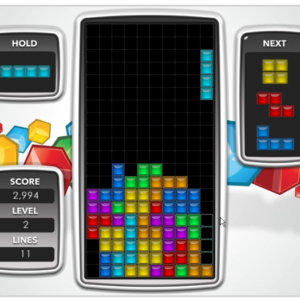
What would playing a video game possibly teach you? The answer is, probably a lot more than you would think, and it may target exactly what you want to learn about.
Motivation to learn and excitement from learning are goals of every teacher, and when these goals are met, excellent learning can take place. Video games achieve these goals nearly by default. The player agrees to put effort into learning the basic rules of the game just by deciding to play, and is therefore already motivated to learn. Games also give excitement by rewarding players when they either learn or create a solution to a problem.
Minecraft is a great example of what video games can teach using this drive to learn and excitement from learning. Described simply, Minecraft is an unlimited lego-brick-like world in which players have the freedom to do whatever they want. Minecraft is special in this way, because most games don’t allow for this much freedom in problem solving, and the game does not provide instructions on screen telling you exactly what to do. This freedom allows the player to create their own goals, and progress at their own pace.
This environment is perfect for practicing self-directed learning. Self-directed learning is exactly as it sounds, one assumes responsibility for their own learning, problem solving, goal setting, and self-evaluating. The use of this ability can branch into many other skills, but because it is self-directed, the specific skills learned will be exactly for that player. For example, imagine a player in Minecraft is trying to plant seeds they just found, but they do not know how.
How will they solve this? Ask a friend? Keep trying different things? Try using a search engine online? Asking a friend is the beginning of teamwork. Trying other ways is thinking creatively. Using a search engine is researching. The player will pick an option that they believe is most appropriate to themselves and their strengths.
However, if the first chosen option fails, they will continue to try and solve their problem because they are being self-motivated and directed. One answer to one problem will not work for every other problem the player comes across, so they will be forced to acquire other skills as well.
Video Games in general also have another advantage, the farther you progress, the more difficult the game becomes, so one is forced to always try new methods and grow. Not every game achieves the ability to teach life skills, or knowledge in general, but it would be a lie to say all “screen time” is bad.
Some games have historical value and teach different things. A good example is World of Tanks because it has real historical accuracy behind each WWII battle and every tank within the game. You can learn the differences between the German Tiger vs the American M4 Sherman tanks. The game also teaches real-world physics of how shell penetration would interact with armour thickness and angles. (I found myself accidentally fascinated with how these mathematical mechanics worked!)
However it is not all positive, there are games that teach little more than repetitive actions. An example of this type of game could be Flappy Bird, where the goal is to just tap the screen and avoid hitting walls as long as you can. One positive note for simple games such as this is that they can have a relaxing effect on the player since no hard thinking is being done.
So examine the games that you, or friends and family play, and do not put all video games into the same category. If you are a parent, you may be able to encourage the games that promote learning, and discourage the ones that are little more than electronic pacifiers (although they have their place too).










